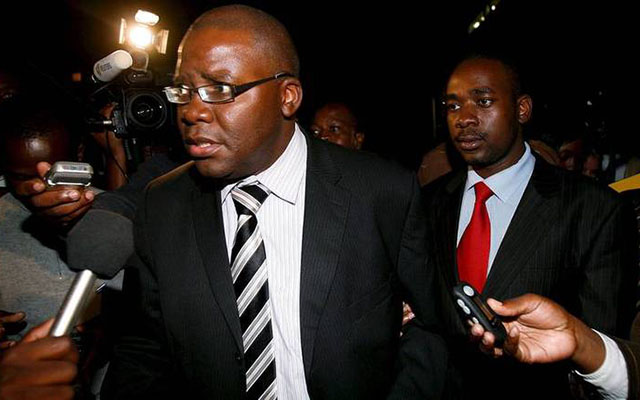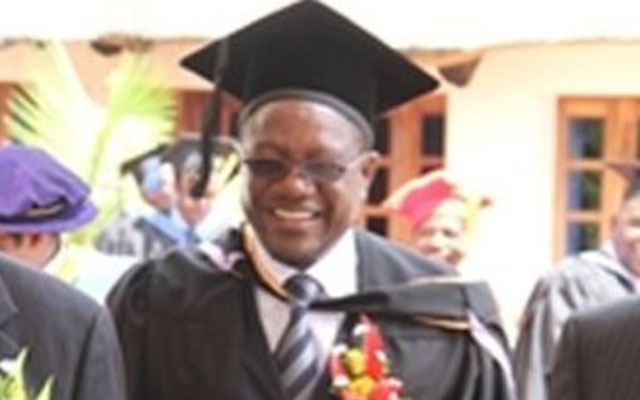Political voyeurism, inclusiveness in Zim

Many in the opposition broke ranks and criticised Messrs Nelson Chamisa and Tendai Biti for going to “beg for sanctions”
MY TURN WITH TICHAONA ZINDOGA
Political attitudes are shifting in Zimbabwe. Or, more precisely, they are in that uneasy region where a large and increasing section is not too sure about its views that had been held over time – perhaps over decades.
Zimbabwe is in the middle of a transition following the resignation of former leader Robert Mugabe and replacement by his erstwhile number two, President Emmerson Mnangagwa. The end of the Mugabe era – itself a key opposition call – has suddenly left some people having to rethink politics, especially the politics of the party.
There can be a number of observations that can be made over the events of the past month. Last Friday, the ruling Zanu-PF held its Extraordinary Congress. One of the main talking points from that event was the discussion on whether the new chairperson of the party, Oppah Muchinguri, was correct to chant down National People’s Party leader Joice Mujuru.
This year’s indaba was pretty thin on slogans, especially those that chanted down the ruling party’s rivals. Not even former President Mugabe and his garrulous wife, Grace, were subject of attacks – something they themselves would have made a feast of in much changed circumstances. So, when Muchinguri blurted out a familiar, “Pasi naJoice Mujuru”, a section of political commentators was not too impressed.
Mainly from and sympathetic to the opposition, these dissenters argued that the era of “Pasi naNhingi” slogans was over. In Zanu-PF, the slogan originally meant death to opponents.
Some believe that it is hate speech and is no longer welcome in this post-Mugabe era. Of course, strictly speaking, the message and thrust has evolved and Zanu-PF’s “enemies” and opponents are not being killed on the instance of the supposedly hateful slogan.
It will be critical to note that the main opposition, the MDC-T, has its equally violent sloganeering in which they call for their opponents, called out by name, to be lifted up into the air and thrown violently down and crushed to death. A good number of those that were offended, or pretended to be offended by Muchinguri’s “Pasi na Joice Mujuru” chant conveniently forgot that.
Not that it is a justification, which is not the point of this submission. Another specimen would suffice. On his homecoming from exile, President Mnangagwa addressed a crowd at Zanu-PF headquarters in Harare on November 22. He then chanted his signature, “Pasi neMhandu” slogan.
This did not go down well with mainly opposition supporters and a similar debate from Muchinguri’s chanting down of Joice Mujuru raged. One writer posing as a Hlomenkuku Mnondo Mgijima – a Zimbabwean who writes from Ethiopia – poses that, “If Zanu-PF are really genuine about ushering a new dawn, I would argue and urge and maybe even plead with them to kindly desist from this form of hate speech. This is not the Zimbabwe our generation ever envisioned.”
The piece, on Newzimbabwe.com appears under the headline, “The slogan that must now die”. The matter is clearly emotional. On another occasion, some Zimbabweans were similarly aggrieved when the President did not include opposition members in his Cabinet. Which begs a number of questions.
Are Zimbabweans now, more than ever, inclined towards the ruling party, Zanu-PF and want to identify with the party, its programmes and how it chants its slogans? Is this a drift towards inclusiveness and that opposition sympathisers and potential converts feel alienated by being labelled as the “mhandu”? Perhaps opposition members ought to be more forthright and openly acknowledge their mellowing attitudes towards the new Zanu-PF under President Mnangagwa.
That will not be easy though. It’s too early in the game, and if the President makes a few good moves, especially on the economy, he may as well capture this swing element. We have noted in these lines how President Mnangagwa is enjoying a lot of goodwill.
He may be considered lucky that apart from a lunatic fringe that goes to foreign towns begging for the maintenance of hostile policies against Zimbabwe, many people actually want Zimbabwe to work again without hindrances. Again, we witnessed the polarising debate last week when the MDC-Alliance and its civil society cousins went to the United States in what has been dubbed the “trip of shame”.
Many in the opposition broke ranks and criticised Messrs Nelson Chamisa and Tendai Biti for going to “beg for sanctions”. A new pattern is emerging in the Zimbabwean body politic. The first level is political voyeurism by the opposition.
Yes, the opposition and its sympathisers have developed some uniquely long noses as they peer into the activities and developments on the other side of the political fence. The much broader issue is that we may be having a situation where Zimbabweans will lean more to the ruling party for some very practical reasons.
The main opposition is at its weakest in years. Its leader, Morgan Tsvangirai, is gravely ill and looks set to drag the party down with him, which another split – conceivable in the circumstances present – will occasion. The party is also broke to the point of penury and this will affect its visibility and viability ahead of elections next year, and much worse, when the elections are to come much earlier.
On the other hand, MDC Alliance will not monopolise diplomatic support in its traditional strongholds in the West. The new administration in Harare is certainly much wiser than previously and would approach international relations with a lot of pragmatism and eyes on the realpolitik.
And there is a huge chance that wherever Zimbabwe goes, she will attract a lot of healthy attention. The game is certainly changing. With these dynamics, it is no surprise that we are seeing some movements and change of attitudes on the political scene. The ruling party will stand to benefit immensely.
And when people complain about some perceived exclusionary slogans, perhaps there is a latent message they are sending. They want to “come home”! (Was it not Professor Jonathan Moyo who said everyone is Zanu-PF at heart?).








Comments